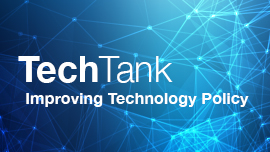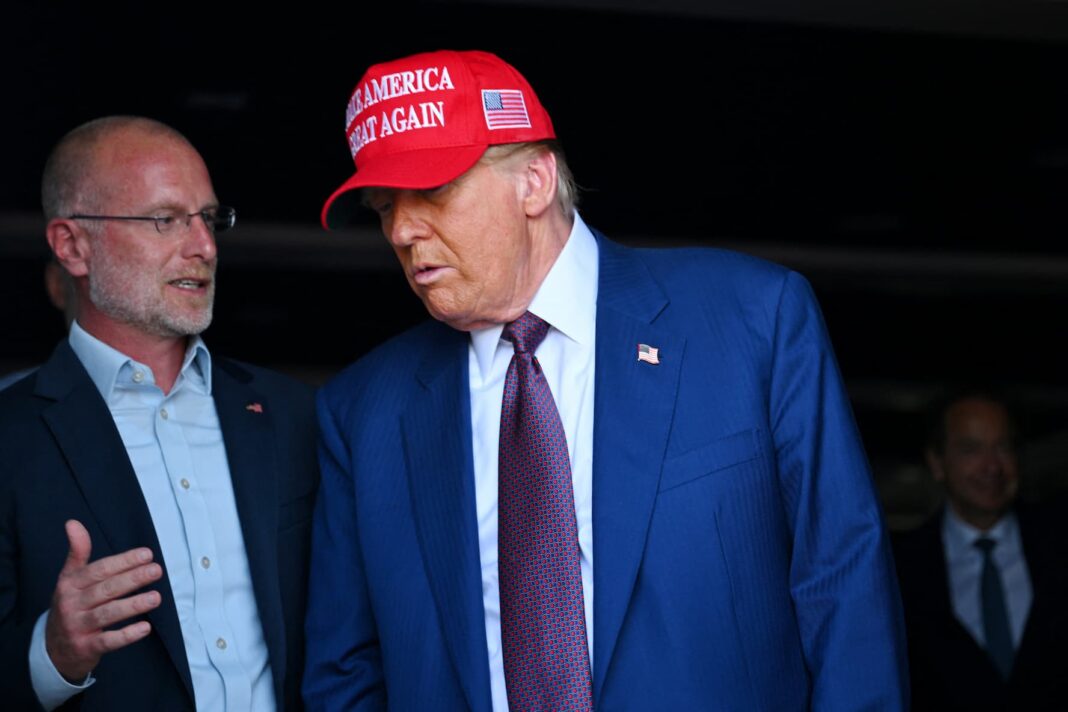The airwaves are buzzing with a new kind of conversation. Paramount’s ambitious merger with Showtime isn’t just about combining content libraries and expanding streaming reach. Behind closed doors, whispers of concessions regarding diversity policies are swirling, with the powerful FCC taking center stage. The Wall Street Journal has obtained exclusive information about these ongoing talks, revealing a potential power struggle that could reshape the media landscape. We’ll break down these confidential negotiations and analyze what they mean for the future of representation in entertainment. Prepare yourself for a glimpse into a battle where control over the airwaves intersects with the fight for on-screen diversity.
Behind Closed Doors: The FCC’s Shift From Deregulation to Coercive Control

The Federal Communications Commission (FCC) under the leadership of Chairman Brendan Carr has implemented a new approach to achieving political goals, one that bypasses traditional regulatory procedures and instead uses coercive investigation to intrude into corporate decisions.
This shift from deregulation to coercive control has significant implications for the media and corporate sectors, as it allows the FCC to exert influence over editorial decisions and diversity, equity, and inclusion (DEI) initiatives without the need for formal votes or judicial review.
The Promise of Project 2025: Deregulation and Market-Friendly Solutions
Project 2025, a report written by Chairman Carr, promises deregulation and a market-friendly regulatory environment that fosters innovation and competition. However, the FCC’s actions have been at odds with this promise, as it has increased its regulatory reach to intrude into corporate decisions and achieve political goals.
The FCC’s actions are not “market-friendly” as promised by Project 2025, but rather a form of regulation by coercive investigation. This approach allows the FCC to exert influence over corporate decisions without the need for formal votes or judicial review, effectively bypassing the limits placed on agency authority by recent Supreme Court decisions.
Chairman Carr’s Actions Speak Louder: Regulatory Expansion Through Investigations
Chairman Carr has used his substantial powers to unilaterally order the apparatus of the commission to action, initiating enforcement without tasking the agency’s investigatory authority to independently build a record and recommend a conclusion.
For example, in a letter to Comcast, Chairman Carr stated that the FCC has already taken action to end its own promotion of DEI, a move that has been met with criticism from current employees of the commission who fear for their future.
The Shadow of Judicial Review: Bypassing Transparency and Due Process
The FCC’s actions in using coercive investigation to intrude into corporate decisions have raised concerns about transparency and due process. By bypassing formal votes and judicial review, the FCC is effectively creating a parallel system of regulation that is not subject to the same checks and balances as traditional regulatory procedures.
This approach has significant implications for the media and corporate sectors, as it allows the FCC to exert influence over editorial decisions and DEI initiatives without the need for transparency or accountability.
Targeting Diversity: The FCC’s Crusade Against Corporate DEI Initiatives
The FCC’s actions in targeting corporate DEI initiatives have been met with criticism from advocacy groups and current employees of the commission. The FCC’s shift from promoting DEI to eliminating it is seen as a step backward for the agency and the country as a whole.
The FCC’s Advisory Committee on Diversity and Digital Empowerment, created by the last Trump FCC chairman, Ajit Pai, has been abolished, and the agency’s efforts to support egalitarian opportunity have been stifled.
Trump’s Executive Orders and the FCC’s Alignment: A Shift in Priorities
President Trump’s executive orders on ending radical and wasteful government DEI programs and preferencing have had a significant impact on the FCC’s priorities. The FCC has fallen in line with the President’s agenda, ending its own promotion of DEI and eliminating the Advisory Committee on Diversity and Digital Empowerment.
This shift in priorities has significant implications for the media and corporate sectors, as it allows the FCC to exert influence over editorial decisions and diversity initiatives without the need for transparency or accountability.
The Impact on Open Opportunity: Eroding DEI Programs and Employee Morale
The FCC’s actions in targeting corporate DEI initiatives have had a significant impact on employee morale and the agency’s efforts to support egalitarian opportunity. Current employees of the commission fear for their future, as they see the FCC’s shift from promoting DEI to eliminating it as a step backward for the agency and the country as a whole.
The eroding of DEI programs and employee morale has significant implications for the media and corporate sectors, as it creates a toxic work environment and stifles innovation and creativity.
A Case Study: The FCC’s Advisory Committee on Diversity and Digital Empowerment
The FCC’s Advisory Committee on Diversity and Digital Empowerment was created by the last Trump FCC chairman, Ajit Pai, to promote diversity and inclusion in the digital age. However, the committee has been abolished, and the agency’s efforts to support egalitarian opportunity have been stifled.
This case study highlights the significant implications of the FCC’s actions in targeting corporate DEI initiatives. The eroding of DEI programs and employee morale has significant implications for the media and corporate sectors, as it creates a toxic work environment and stifles innovation and creativity.
Paramount in the Crosshairs: The Merger Negotiations and the Stakes Involved
As reported by Unionjournalism, Paramount is currently in talks with the Federal Communications Commission (FCC) over diversity policy concessions in an effort to push forward its highly anticipated merger. This development comes as no surprise, given the FCC’s recent shift in regulatory landscape and its increased scrutiny of media companies.
The Alleged Concessions: What is Paramount Willing to Give Up?
According to sources close to the negotiations, Paramount is willing to make significant concessions to appease the FCC’s demands. These concessions are likely to include commitments to increase diversity and inclusion in its hiring practices, as well as investments in diversity-focused programming and initiatives. While the exact nature of these concessions remains unclear, one thing is certain – Paramount is willing to do whatever it takes to get this merger across the finish line.
The Stakes for Paramount: Navigating the FCC’s Shifting Landscape
The stakes for Paramount are high, as the success of this merger hangs in the balance. The company is no stranger to navigating the complexities of FCC regulations, but recent changes to the agency’s approach have created a new level of uncertainty. With the FCC’s increased focus on diversity and inclusion, Paramount must walk a fine line between appeasing regulators and protecting its business interests.
The Implications for Media Consolidation: Does This Signal a Trend?
The implications of this merger extend far beyond Paramount’s own interests. As the media landscape continues to evolve, the FCC’s approach to regulating mergers and acquisitions will have a lasting impact on the industry as a whole. Will this merger set a new precedent for diversity and inclusion in media companies, or is it simply a one-off concession to get the deal done? Only time will tell, but one thing is certain – the eyes of the industry are watching this development closely.
Unions and the FCC: A Call for Worker Rights in the Face of Regulatory Power
In the midst of this high-stakes merger negotiation, unions are calling for greater protections for worker rights in the face of increasing regulatory power. As the FCC continues to flex its muscles, unions are pushing back against coercive practices that threaten the very fabric of their organizations.
The Potential Impact on Unionized FCC Employees: Job Security and Representation
For unionized FCC employees, the stakes are personal. As the agency continues to shift its focus towards diversity and inclusion, workers are left wondering about the implications for their job security and representation. Will the FCC’s increased focus on DEI initiatives lead to a more inclusive workplace, or will it create new challenges for unionized employees?
The Role of Unions in Protecting DEI Initiatives: Advocating for Inclusive Workplaces
Unions have long been at the forefront of advocating for inclusive workplaces, and the FCC is no exception. As the agency continues to grapple with the complexities of diversity and inclusion, unions are pushing for greater protections and safeguards to ensure that worker rights are respected.
A Call to Action: Engaging with the FCC and Challenging Coercive Practices
In the face of increasing regulatory power, unions are calling for a unified response. By engaging with the FCC and challenging coercive practices, unions can push back against the agency’s overreach and protect the rights of workers. It’s time for unions to take a stand and fight for a more inclusive, more equitable workplace.
Conclusion
The possibility of Paramount’s merger with CBS hangs in the balance, not on the strength of their programming or market reach, but on a delicate negotiation with the FCC. As reported by the Wall Street Journal, Paramount is reportedly making concessions on its diversity policy in an attempt to appease regulators. This move, driven by the desire to secure a green light for the merger, raises serious questions about the potential for corporate influence to undermine crucial social progress. The FCC’s role in upholding diversity standards in media is paramount. This isn’t simply about representation; it’s about ensuring a range of voices and perspectives shape the narratives that influence our understanding of ourselves and the world. If Paramount’s concessions signal a willingness to compromise on diversity for the sake of financial gain, it sets a dangerous precedent for the media landscape. Will other companies follow suit, prioritizing profits over the fundamental right to equitable representation? The answer to this question will have far-reaching implications for the future of media and its ability to truly reflect the complexity and richness of our society.

